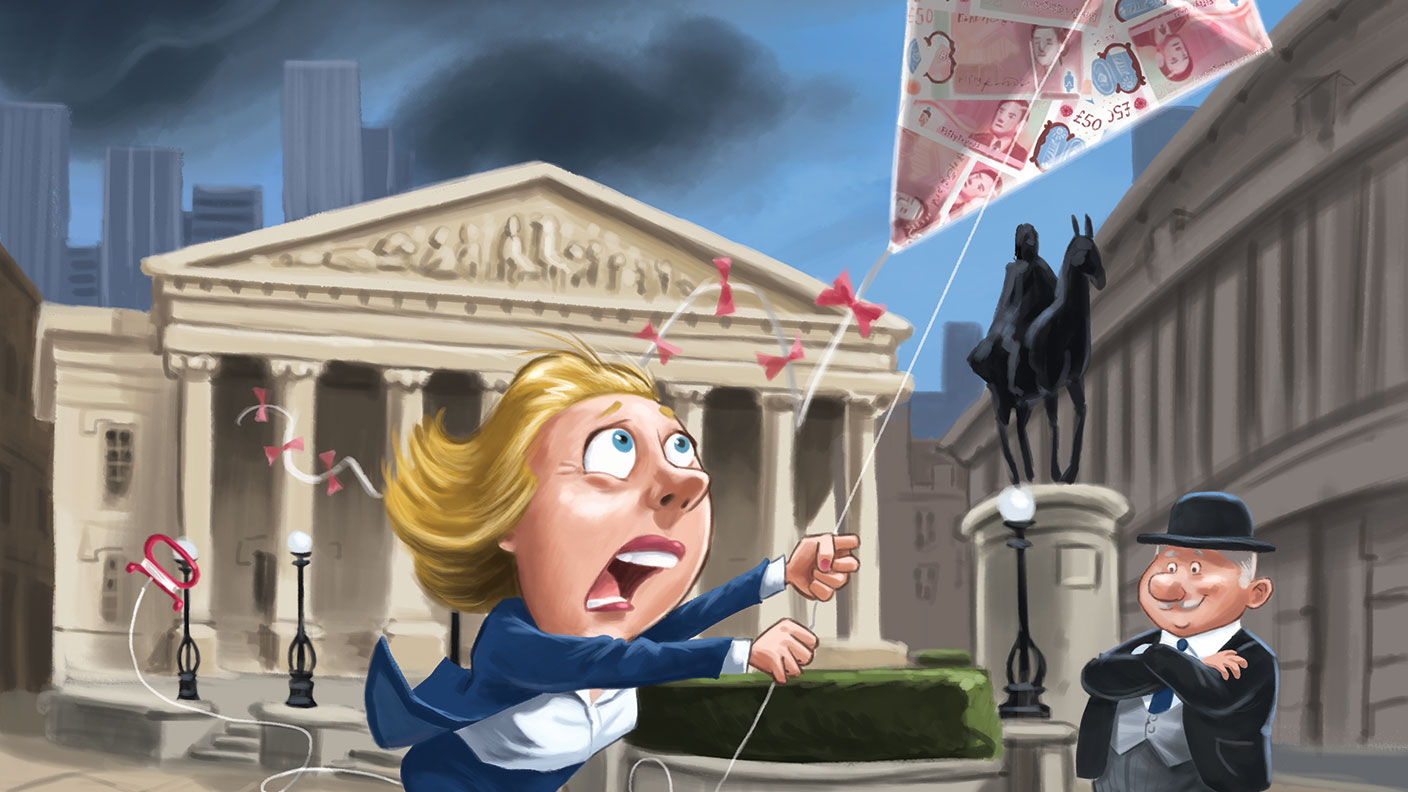My European buy-to-let nightmare
Buy that holiday cottage you love so much, and rent it out as a money spinner. What a lovely idea! But before you sign, get real. Bengt Saelensminde on the pitfalls of buy-to-let.
Get the latest financial news, insights and expert analysis from our award-winning MoneyWeek team, to help you understand what really matters when it comes to your finances.
You are now subscribed
Your newsletter sign-up was successful
Want to add more newsletters?

Twice daily
MoneyWeek
Get the latest financial news, insights and expert analysis from our award-winning MoneyWeek team, to help you understand what really matters when it comes to your finances.

Four times a week
Look After My Bills
Sign up to our free money-saving newsletter, filled with the latest news and expert advice to help you find the best tips and deals for managing your bills. Start saving today!

Buy that holiday cottage you love so much, and rent it out as a money spinner. What a lovely idea! But before you sign, get real. Bengt Saelensminde on the pitfalls of buy-to-let.
You're on holiday. You fall in love with a place.You take a sneaky look in the estate agents' windows. Your mind starts whirring. Why not save yourself the cost of a villa next time? Better still, turn it into a money-spinner! Well, before you get carried away, I've been a landlord in France for many years both in the holiday market, and traditional tenancy area. And let me warn you that the pitfalls for the uninitiated are myriad.
Holiday lets
Top prices on holiday lets only apply at the height of the season the school holidays. Even when you get a couple of good rents, you'll have to take into account some big costs the biggest of which is reaching your clientele. Professional management companies can be a godsend, but they can take as much as a third of your gross rent. And they won't take on just any property. For a summer place, they'll most likely insist on a swimming pool. If you own or have ever owned a pool you'll be acutely aware of the costs and hassle involved in keeping just this one thing maintained.
MoneyWeek
Subscribe to MoneyWeek today and get your first six magazine issues absolutely FREE

Sign up to Money Morning
Don't miss the latest investment and personal finances news, market analysis, plus money-saving tips with our free twice-daily newsletter
Don't miss the latest investment and personal finances news, market analysis, plus money-saving tips with our free twice-daily newsletter
And on holiday homes, this is just the start. These things often suffer through infrequent use it's as if the property is trying to tell you it feels neglected. The plumbing furs up. Toilet floats seize, pipes burst, roofs leak all manner of misery ensues. Winter costs often offset those lucrative summer rents.
Other hassles include basic things like changeovers. It should be simple to do a quick clean and ensure that everything is in order. But in my experience, finding the right person or company to do it is tricky. And if you haven't got the right team, you'll soon know. People can be extremely forgiving but not when it's their dream holiday! Do you really want the trouble?
Continental rental
So how about the traditional rental market? I've moved a couple of my properties over to this sector. As continental price rises haven't been as extreme as in the UK, yields are generally more enticing. Where I am in France, I'm getting near enough 5%, compared to sub-4% in much of the UK (according to the Global Property Guide).
But there's a downside. Tenants typically havefar more protection on the continent. So before you hunt for a buy-to-let, get hold of a standard tenancy agreement and get it translated! In France, for example, it's very hard to get a problem tenant out. They may have rights to change all manner of things, and stay for years longer than you would like.
Even if you get an eviction order, they can only be put into action at specific times of year you can't hoof somebody out in the depths of winter. Also check the tax situation. There are usually property taxes payable by the landlord as well as the tenant.
Not put off buy-to-let yet?
Still keen? A few final warnings if so. UK estate agents have a pretty rancid reputation. But I assure you, they've got nothing on their continental counterparts. For starters, commission rates are generally in double digits. Worse, if you're selling and you agree a sales price with the agent, he or she is free to market (and sell) the property at a higher price and keep the difference. So whether you're buying or selling, be aware of how much the agent is getting.
It could be a good sign you're overpaying.And if you're asked to sign a contract, find out exactly what's in it. Unlike England (Scotland is different), in Europe you generally sign an initial contract, stating an intention to buy, and put down a deposit. So if you haven't read (or understood) a clause in the contract that you later don't like, you could come a cropper pulling out of the deal is likely to cost you your deposit.
Consider inheritance law too in much of continental Europe you can't just bequeath the asset to anyone you like, not even your spouse. This is one reason why many British buyers prefer to buy under the wrapper of a business. On top of that, stamp duty and notary fees come in at around 8% andyou thought the UK was bad!
A knock-on effect of high transaction costs isthat transaction volumes are pitifully small that means it's hard to sell quickly, and if you need to, you're likely to get less than you were expecting. So when you go off on your summer holidays, especially in Latin Europe, it's worth heeding a little bit of Latin when you're doing your fantasy window shopping at the local estate agency: caveat emptor.
Get the latest financial news, insights and expert analysis from our award-winning MoneyWeek team, to help you understand what really matters when it comes to your finances.
Bengt graduated from Reading University in 1994 and followed up with a master's degree in business economics.
He started stock market investing at the age of 13, and this eventually led to a job in the City of London in 1995. He started on a bond desk at Cantor Fitzgerald and ended up running a desk at stockbroker's Cazenove.
Bengt left the City in 2000 to start up his own import and beauty products business which he still runs today.
-
 Should you buy an active ETF?
Should you buy an active ETF?ETFs are often mischaracterised as passive products, but they can be a convenient way to add active management to your portfolio
-
 Power up your pension before 5 April – easy ways to save before the tax year end
Power up your pension before 5 April – easy ways to save before the tax year endWith the end of the tax year looming, pension savers currently have a window to review and maximise what’s going into their retirement funds – we look at how
-
 Governments will sink in a world drowning in debt
Governments will sink in a world drowning in debtCover Story Rising interest rates and soaring inflation will leave many governments with unsustainable debts. Get set for a wave of sovereign defaults, says Jonathan Compton.
-
 Why Australia’s luck is set to run out
Why Australia’s luck is set to run outCover Story A low-quality election campaign in Australia has produced a government with no clear strategy. That’s bad news in an increasingly difficult geopolitical environment, says Philip Pilkington
-
 Why new technology is the future of the construction industry
Why new technology is the future of the construction industryCover Story The construction industry faces many challenges. New technologies from augmented reality and digitisation to exoskeletons and robotics can help solve them. Matthew Partridge reports.
-
 UBI which was once unthinkable is being rolled out around the world. What's going on?
UBI which was once unthinkable is being rolled out around the world. What's going on?Cover Story Universal basic income, the idea that everyone should be paid a liveable income by the state, no strings attached, was once for the birds. Now it seems it’s on the brink of being rolled out, says Stuart Watkins.
-
 Inflation is here to stay: it’s time to protect your portfolio
Inflation is here to stay: it’s time to protect your portfolioCover Story Unlike in 2008, widespread money printing and government spending are pushing up prices. Central banks can’t raise interest rates because the world can’t afford it, says John Stepek. Here’s what happens next
-
 Will Biden’s stimulus package fuel global inflation – and how can you protect your wealth?
Will Biden’s stimulus package fuel global inflation – and how can you protect your wealth?Cover Story Joe Biden’s latest stimulus package threatens to fuel inflation around the globe. What should investors do?
-
 What the race for the White House means for your money
What the race for the White House means for your moneyCover Story American voters are about to decide whether Donald Trump or Joe Biden will take the oath of office on 20 January. Matthew Partridge explains how various election scenarios could affect your portfolio.
-
 What’s worse: monopoly power or government intervention?
What’s worse: monopoly power or government intervention?Cover Story Politicians of all stripes increasingly agree with Karl Marx on one point – that monopolies are an inevitable consequence of free-market capitalism, and must be broken up. Are they right? Stuart Watkins isn’t so sure.